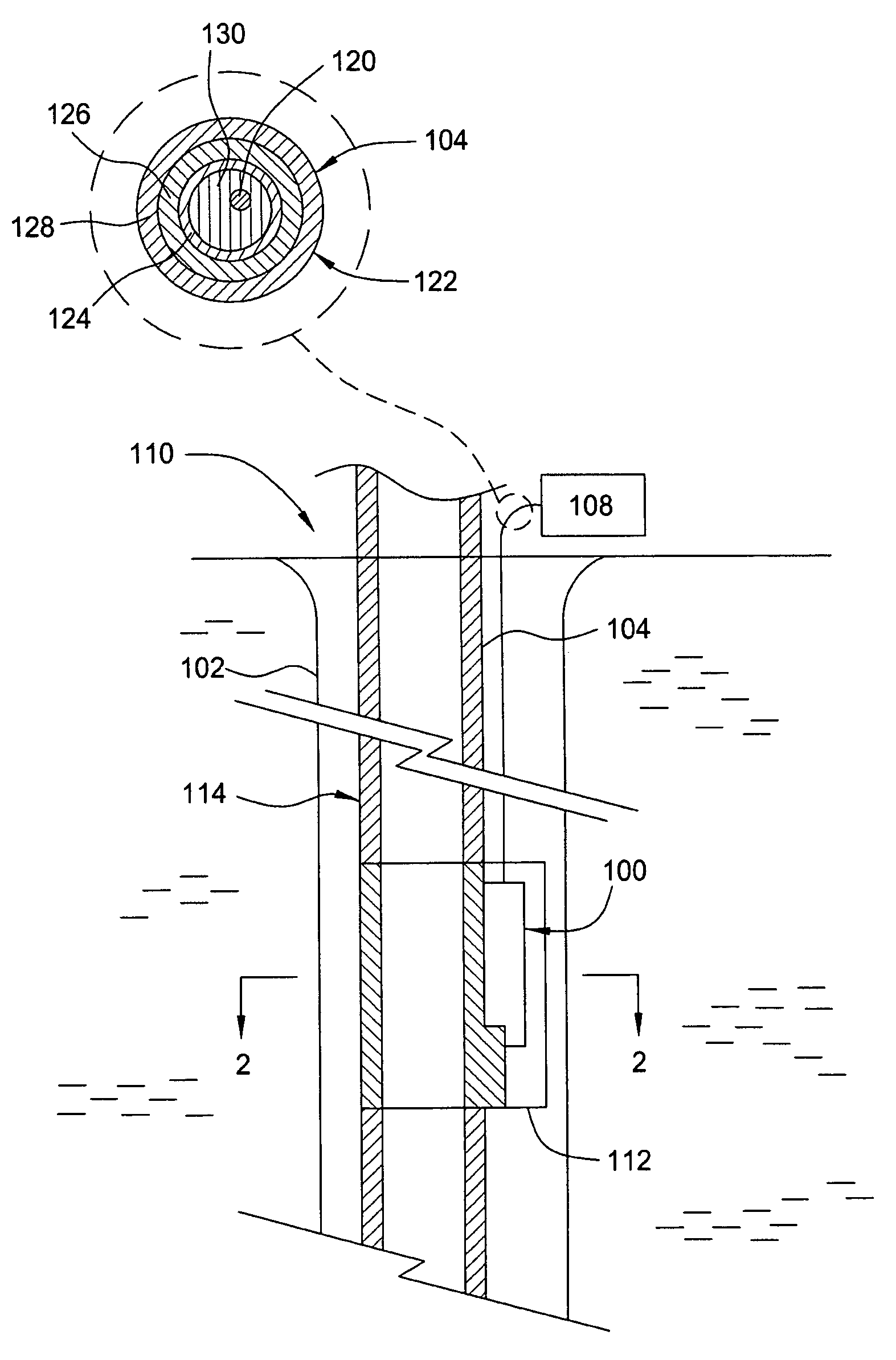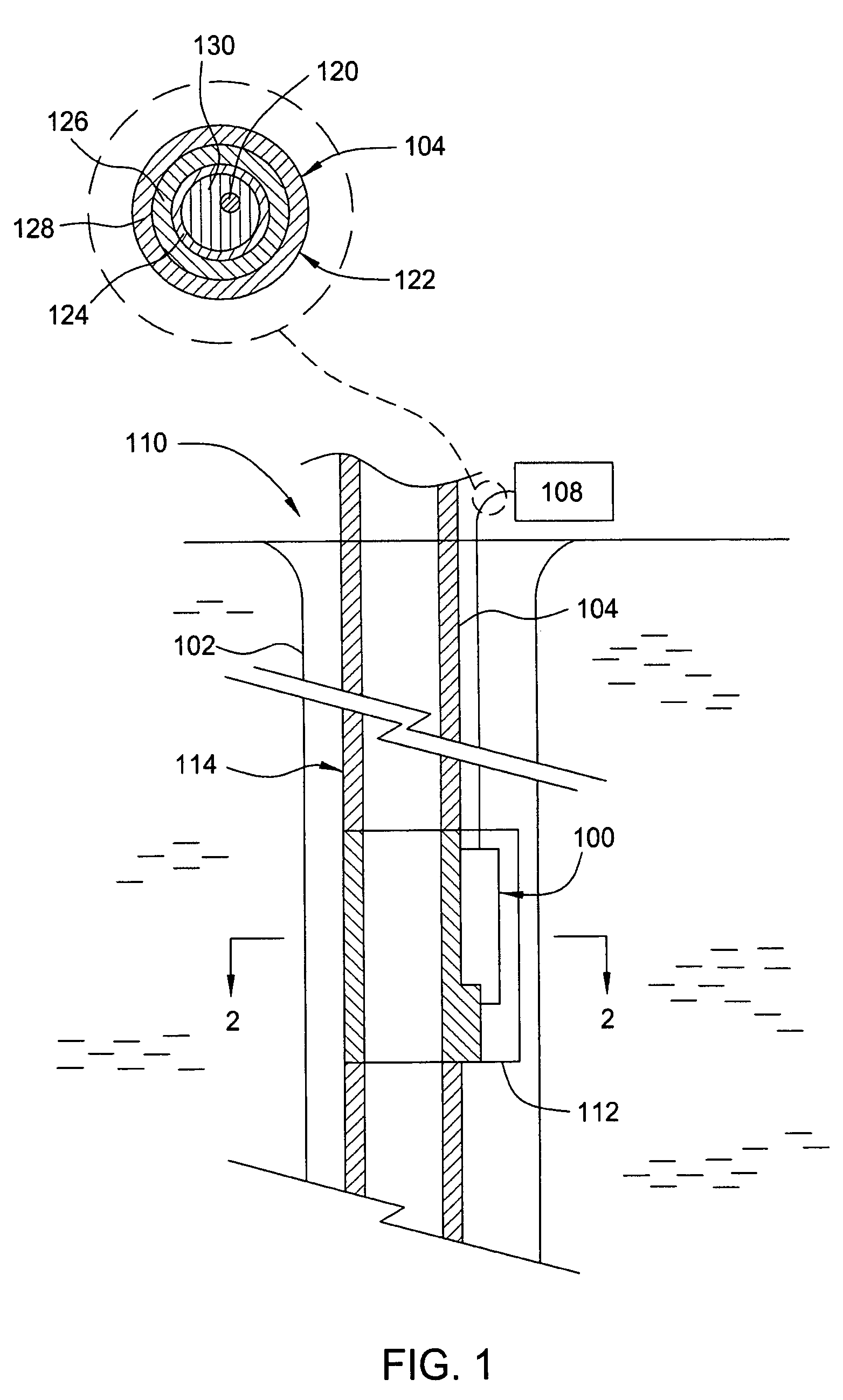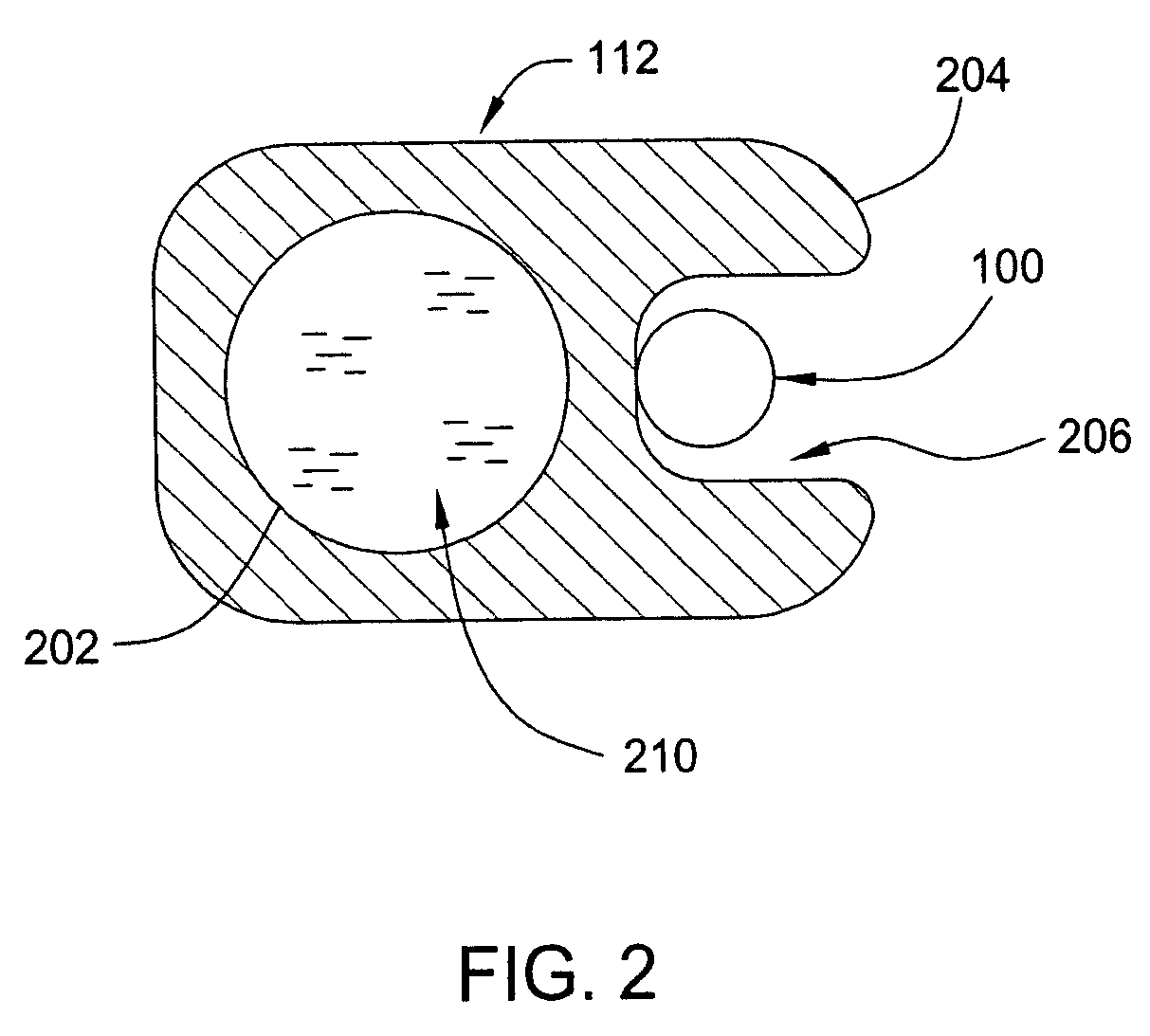Pressure sensor assembly suitable for use in harsh environments
a pressure sensor and assembly technology, applied in the field of pressure sensors, can solve the problems of large error in the attachment of the sensing element to the elastic structure, dc shift or drift error in the sensor signal, and difficulty in achieving true zero base strain sensitivity if not impossibl
- Summary
- Abstract
- Description
- Claims
- Application Information
AI Technical Summary
Problems solved by technology
Method used
Image
Examples
Embodiment Construction
[0035]FIG. 1 is a simplified sectional view of an oil and / or gas well 110 having one embodiment of a pressure sensor 100 of the present invention disposed down the bore 102 of the well 110. The pressure sensor 100 is generally coupled by an optical cable 104 to a controller 108. The controller 108 is suitable for generating an optical signal transmitted through the cable 104 to the sensor 100 and resolving optical data reflected back through the cable 104 from the sensor 100. As is known, information from the transmitted and reflected signals may be utilized to determine pressure and / or other environmental information, such as shock, temperature, strain and the like, at the sensor 100. Suitable optical cables and controllers are available from Weatherford, Inc. located in Houston, Tex.
[0036]The optical cable 104 generally includes one or more optical fibers suitable for transmitting optical signals between the controller 108 and the sensor 100. Examples of suitable optical cables ar...
PUM
| Property | Measurement | Unit |
|---|---|---|
| frequencies | aaaaa | aaaaa |
| length | aaaaa | aaaaa |
| diameter d1 | aaaaa | aaaaa |
Abstract
Description
Claims
Application Information
 Login to view more
Login to view more - R&D Engineer
- R&D Manager
- IP Professional
- Industry Leading Data Capabilities
- Powerful AI technology
- Patent DNA Extraction
Browse by: Latest US Patents, China's latest patents, Technical Efficacy Thesaurus, Application Domain, Technology Topic.
© 2024 PatSnap. All rights reserved.Legal|Privacy policy|Modern Slavery Act Transparency Statement|Sitemap



